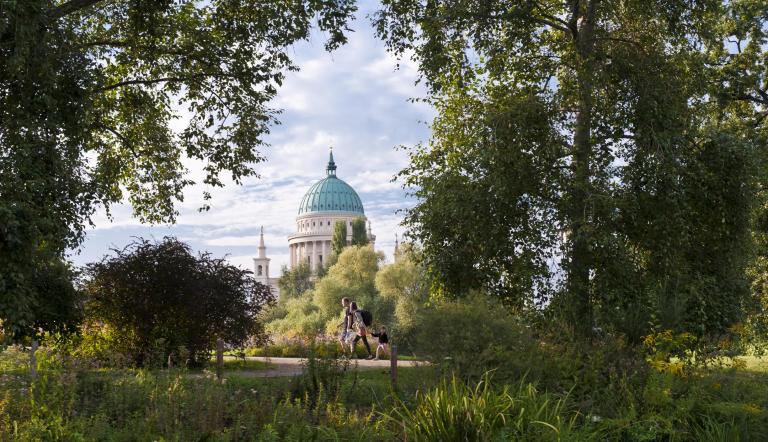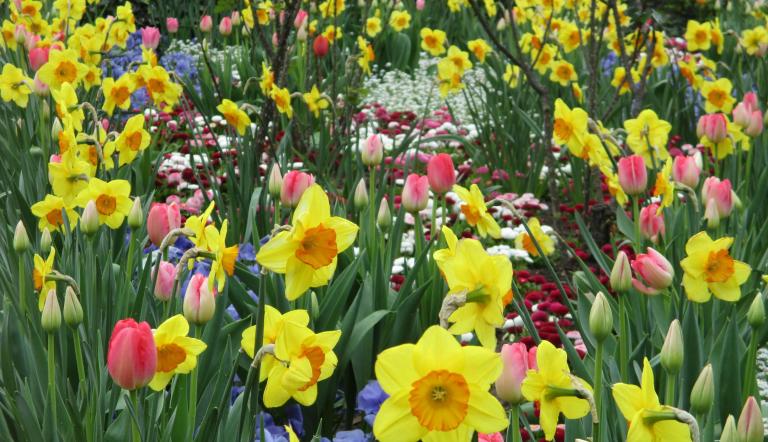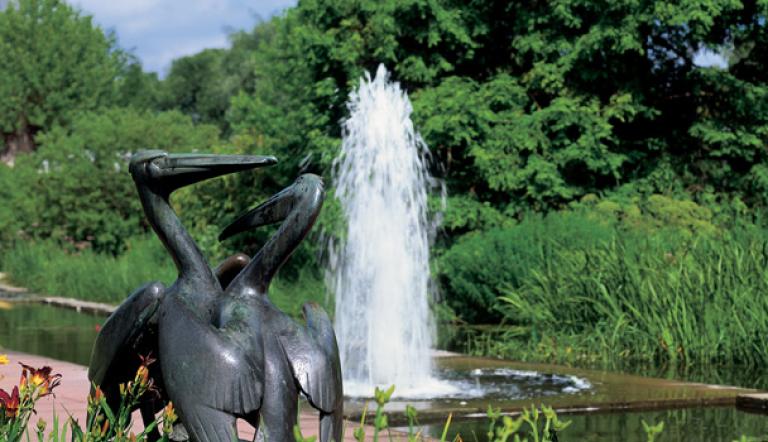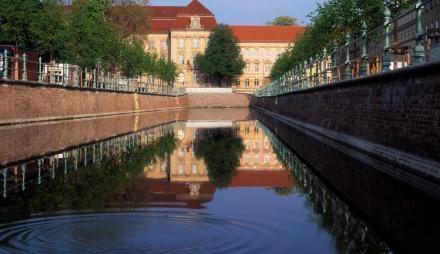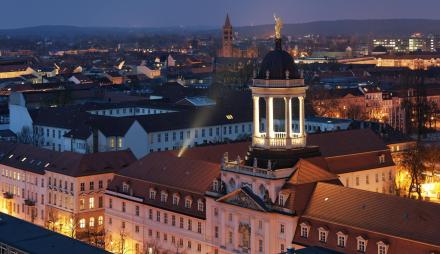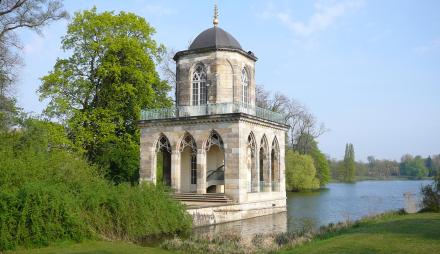Friendship Island is a gem among the urban green spaces of Potsdam. Located in the heart of the city between two arms of the Havel River, it is a refuge for nature and art appreciation, walks, and relaxation. Summer cultural events at the open-air stage, exhibitions in the pavilion, the annual perennial market, the island café with outdoor seating, numerous sculptures, a boat rental, and much more attract visitors of all ages. Children come not only to feed the ducks, as the playground on Friendship Island is undoubtedly the most popular in Potsdam. The island is freely accessible.
Originally a sandbar island separating the Old and New Channels of the Havel River, Friendship Island, once home to arbor gardens and boatyards, was transformed between 1938 and 1940. On the initiative of the famous perennial breeder Karl Foerster (1874–1970) and designed by Hermann Mattern, it was laid out as an exhibition and trial garden primarily for perennial and rose plantings. The garden opened in 1941.
After the destruction of World War II, the area was crisscrossed with trenches, and the people of Potsdam planted vegetables in the beds to survive the harsh post-war years. The redesign by landscape architects Hermann Göritz and Walter Funcke from 1953 onwards helped restore the island as a popular destination. However, preparations for the 10th World Festival of Youth in 1973 led to brutal changes. A wide asphalt road, a kiosk, an open-air stage, and the island café were added. The island became more and more of a recreational area. Due to frequent plant thefts and destruction, as well as the varied soil conditions, the trial garden was moved in 1965 to Nossen and Marquardt.
Since 1977, the seven-hectare site has held the status of a cultural monument. The comprehensive reconstruction of the buildings, paths, and valuable old tree stock has been ongoing since 1996. To mark the occasion of the Federal Garden Exhibition (BUGA), the island was restored to its former glory as a garden jewel in the heart of the city, now enclosed to prevent further vandalism. Over two years, a Europe-wide search gathered all the remaining cultivars bred by Foerster. 362 varieties were known, and 204 were found, including phloxes, asters, delphiniums, sun’s eye, and yucca plants. In total, 100,000 perennials (1,200 varieties), ferns, and grasses have been planted in sections of the garden, including the perennial garden, rock garden, and water garden.
Links
Address
Freundschaftsinsel Potsdam
Lange Brücke
14467 Potsdam
Germany

